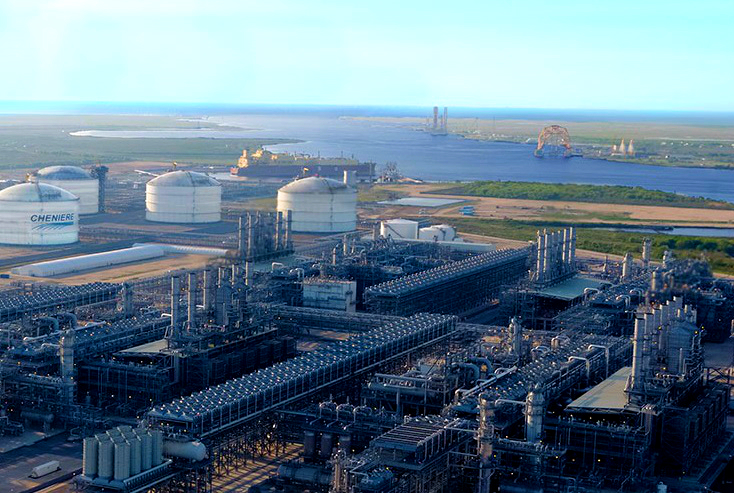Leased Russian Tanker Heads for U.S. to Load LNG Cargo
MOSCOW, Nov 8 (Reuters) - A gas tanker once hailed by President Vladimir Putin as a bulwark of Russian energy security is heading for a liquefied natural gas (LNG) terminal in the United States, according to ship-tracking data from Refinitiv's Eikon.
The collection of an LNG cargo from the United States by a Russian tanker would be potentially awkward for Putin and Kremlin-controlled gas company Gazprom, which leased out the vessel to Austrian company OMV in August.
Putin has accused the United States of trying to undercut Russian gas supplies with its LNG exports which he has said are over-priced and noncompetitive.
Gazprom declined to comment on the vessel's movements. OMV did not immediately respond to a request for comment. It was unclear where the Russian tanker would go after collecting a LNG cargo in the United States.
U.S. seaborne LNG is seen as a threat to Gazprom's dominant position in the gas market in Europe where it accounts for more than 35% of supplies and comes at a time when its deliveries of pipeline gas to the region are expected to fall this year from a record-high of more than 200 billion cubic meters in 2018.
According to the Refinitiv Eikon data, the Marshal Vasilevskiy floating storage and regasification unit (FSRU) - which can also act as an LNG vessel - departed from the port of Rotterdam on Nov. 4.
It is due to arrive at the Sabine Pass LNG terminal on Nov. 26 and loading is scheduled for Nov. 29, the data showed.
The terminal in Louisiana is part of President Donald Trump's pursuit of an "energy dominance" policy that seeks to maximize U.S. oil, gas and coal production.
Dozens of LNG export terminals are planned in the United States with a total capacity exceeding 300 million tonnes per year. That is equal to the world's entire consumption of LNG last year.
The Marshal Vasilevskiy was moored near the Russian exclave of Kaliningrad before it was leased out to OMV.
It was originally anchored near Kaliningrad to offset potential disruptions to gas pipeline flows via Belarus to the area, which is sandwiched between Poland and Lithuania and cut off from the rest of Russia.
Related News
Related News

- Keystone Oil Pipeline Resumes Operations After Temporary Shutdown
- Freeport LNG Plant Runs Near Zero Consumption for Fifth Day
- Biden Administration Buys Oil for Emergency Reserve Above Target Price
- Mexico Seizes Air Liquide's Hydrogen Plant at Pemex Refinery
- Enbridge to Invest $500 Million in Pipeline Assets, Including Expansion of 850-Mile Gray Oak Pipeline
- Evacuation Technologies to Reduce Methane Releases During Pigging
- Editor’s Notebook: Nord Stream’s $20 Billion Question
- Enbridge Receives Approval to Begin Service on Louisiana Venice Gas Pipeline Project
- Mexico Seizes Air Liquide's Hydrogen Plant at Pemex Refinery
- Russian LNG Unfazed By U.S. Sanctions





Comments